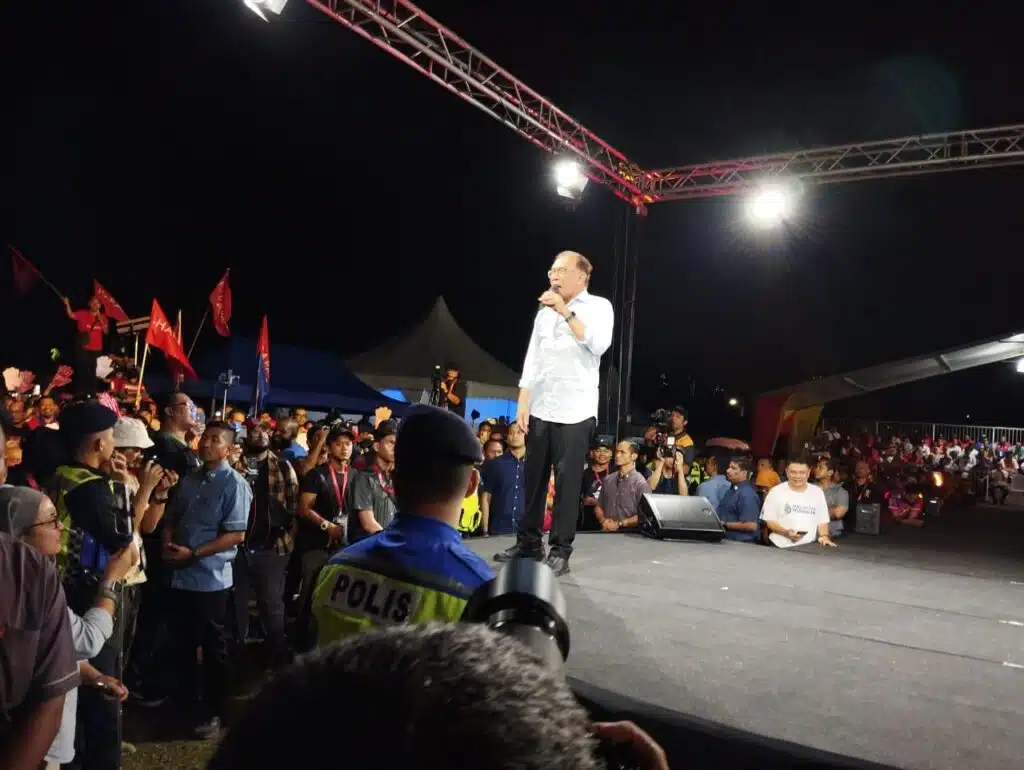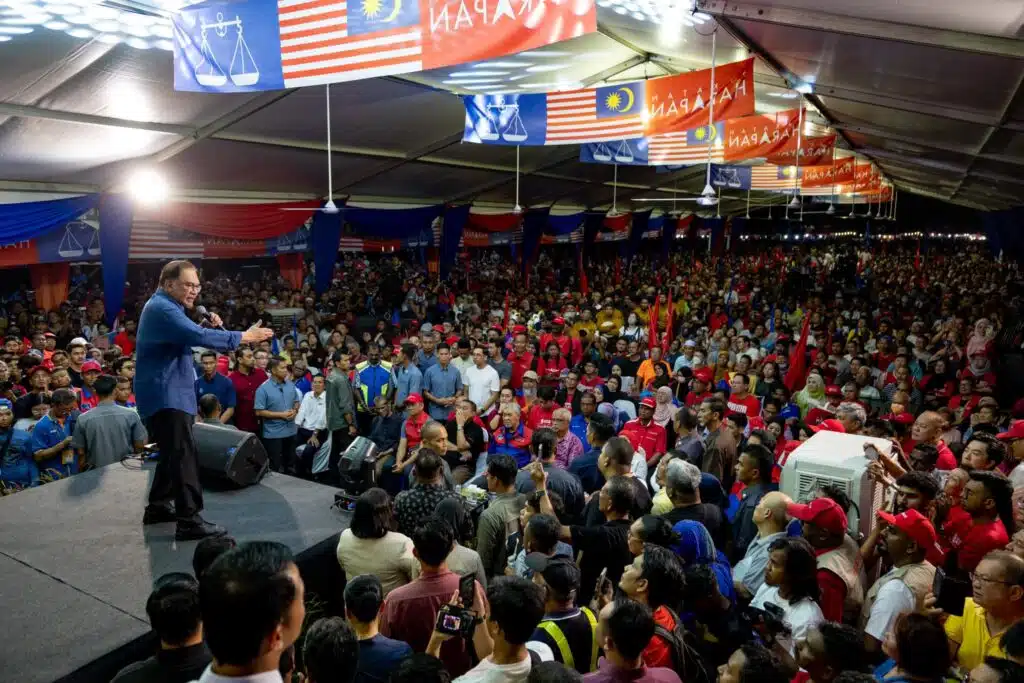By Danial Dzulkifly
SHAH ALAM, Aug 18 — The conclusion of the six state elections last week has shed spotlight on the significant shift within the Malay voter base, according to political analysts.
A pronounced preference for Perikatan Nasional (PN) from among the majority race emerged, propelling the Malay-centric parties within the coalition — PAS and Bersatu — to expand their influence in the three states governed by Pakatan Harapan (Harapan).
This notable shift led to PN clinching five state seats in Negeri Sembilan, 11 in Pulau Pinang, and an impressive 22 in Selangor, Harapan’s political stronghold.
PN’s sweeping wins across its three Malay-majority states further underscored their rising prominence, claiming all 32 seats in Terengganu, 40 of the 42 in Kelantan, and 30 out of 36 in Kedah.
Overall, PN secured approximately 60 per cent of the 245 state seats up for grabs. In contrast, Umno only managed to win around 15 per cent of the seats they contested.

Diminishing support for Umno
Mazlan Ali of Universiti Teknologi Malaysia (UTM) noted this trend of shifting support, pointing out that ‘around 30 per cent of traditional Umno supporters’ have switched their allegiance to PN, resulting in significant electoral gains enjoyed by the latter.
However, there are still keen contests for the undecided Malay voters.
“The close contests in several seats in Terengganu, with winning margins of fewer than 3,000 votes, underscore this point,” he said.
Mazlan also refuted notions of an escalating ‘greenwave’ or rising Malay disenchantment against the Unity Government.
He instead suggested the swing in support was owing to Umno and Barisan Nasional’s (BN) waning appeal, propelling their traditional voters towards PN. Additionally, a notable portion of the Malay electorate abstained from voting.
“Looking at Selangor, I estimate that around 40 per cent of traditional Umno voters have veered towards PN.
“As a result, of the overall Malay constituents, 25 to 35 per cent voted for the Harapan-BN alliance, while 40 to 45 per cent went to PN. The remaining did not come out to vote.
“Based on this, I can say the green wave is not actually strengthening but there are large protest votes against Umno. There is still some suspicions by the Malay electorate concerning DAP,” he told Selangor Journal.
Addressing speculations the state election results were a referendum of sorts against Prime Minister Datuk Seri Anwar Ibrahim’s Federal leadership, Mazlan contested this view.
He pointed out the Harapan-BN coalition still secured the majority of popular votes in the six states, with some other political observers also noting the unity pact had secured some 1.6 million votes in Selangor compared to only one million garnered by PN.

Islamic revivalism, fear over ‘diminishing’ Malay rights
Singapore Institute of International Affairs’ Oh Ei Sun said the shift of support for PN from the Malay electorate was due to their reservation of Harapan’s supposed multiracial approach, while distrusting Umno’s overall ability to champion their rights.
He added the prevailing sentiment is not solely rooted in disappointment with the Harapan-led state administrations, but is also entwined with a global resurgence of Islamic revivalism.
“This trend is observable in other Muslim-majority nations, like Turkey and Indonesia. There’s a renewed desire for a more conservative way of life and a society that prioritises religious values.
“In contrast, the Harapan government consistently emphasises their socio-economic accomplishments, whereas these voters are more inclined towards spiritual and values-driven concerns rather than material pursuits,” he said to Selangor Journal.
Oh added such a trend transcends both urban and rural constituencies and is no longer confined to specific regions like Kelantan, Kedah, and Terengganu.
“These states, for instance, are keen to uphold the traditional lifestyle they have known for many years.
“Additionally, examining examples from states like Sabah, Terengganu, and Kelantan, voters express resistance to opening doors for large corporations, fearing that an Umno-led government would usher in such changes,’’ he said.

Prevalent protest votes against Harapan-BN
Nusantara Academy for Strategic Research senior fellow Azmi Hassan, meanwhile, attributed PN’s success in making inroads in Harapan-led states to protest votes from core Harapan and Umno supporters respectively, directed against the Unity Government coalition.
“The transition of both Malay Umno and Harapan voters towards PN is unmistakable,” he said.
“For instance, in Gombak Setia, Datuk Megat Zulkarnain Omardin’s expected victory did not materialise, despite GE15 data which showed Dato’ Seri Amirudin Shari securing a substantial win in the Gombak Parliamentary seat.
“While Gombak Setia has contributed numerous votes to Amirudin in GE15, this support did not translate into a similar outcome for Megat. Clearly, Harapan supporters did not fully rally behind the Umno candidate,” he said.
In essence, Azmi’s analysis underscored the complex dynamics of protest votes and the intricate interplay of party allegiances, contributing to the outcome in Harapan-led states.
On PN’s brilliant performance in Kelantan and Terengganu despite supposed discontentment among voters over PAS’ administration, Azmi said this narrative (of voters’ dissatisfaction) was partly crafted by Harapan-BN.
“Despite these grumblings, PAS supporters maintain a distinct allegiance separate from Umno and Harapan. Regardless of the issues or narratives presented by their opponents, PAS supporters remain steadfast in their support for the party’s candidates,” he said.
Azmi said the recent election outcome functions as a sort of message on why a significant number of Malay voters have left Umno.
“This trend was evident in GE15 and even as far back as GE14. The prevailing perception is that Umno appears weaker compared to DAP, which is deemed more influential in the Federal government.
“Consequently, Malay voters have lost confidence in Umno due to developments at the Federal level.
“The perception of Umno versus DAP at the Federal level should be managed carefully. Anwar should demonstrate that he can exert control over both Umno and DAP, but this dynamic has not been effectively established,” he said.






